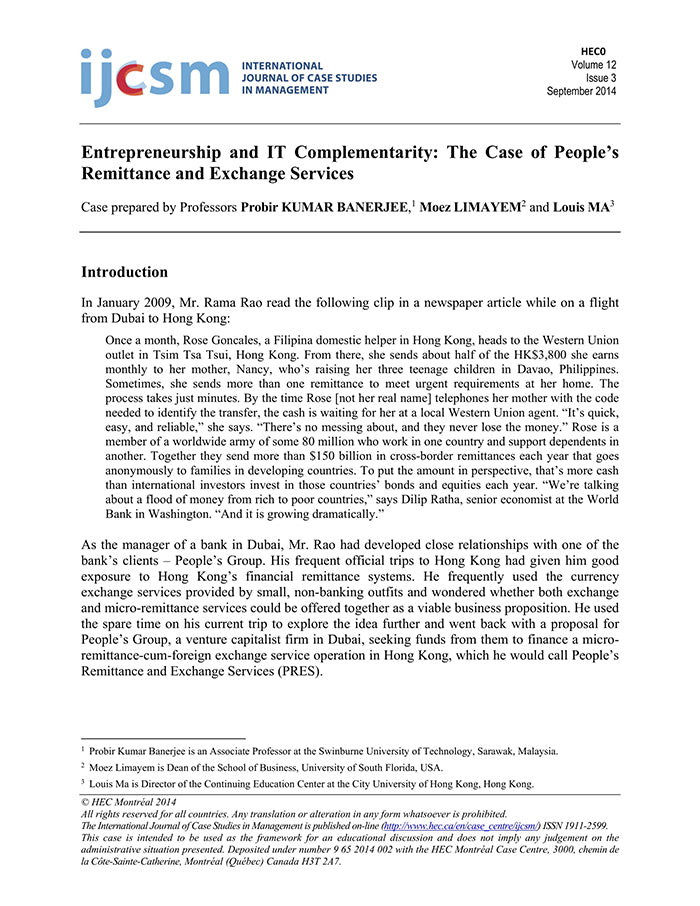Entrepreneurship and IT Complementarity: The Case of People's Remittance and Exchange Services
受取状況を読み込めませんでした
Mr. Rao, with several years of banking experience, approached People's Group Dubai, a venture capitalist firm, seeking financing for a micro-remittance-cum-foreign exchange service operation in Hong Kong. He argued that demand for currency exchange services in Hong Kong would continue to grow because of the high number of tourists who visited Hong Kong on their China tour. He also argued that a captive market of domestic workers who remitted their wages to their home countries would provide continuous demand for remittance services. Mr. Rao was confident that he could start quickly with a small office staffed by a few tellers and one manager in a busy location of Hong Kong, and then expand operations to other locations. However, financing to cover fixed assets and working capital would be required to open additional outlets. A major enabler of the proposed strategy was the telecommunication network of Western Union, which had established a presence in several parts of the world as a trustworthy provider of remittance services. Mr. Rao also intended to benefit from the technology support and expertise of the IT arm of People's Group based in Bangalore, India. People's Group Dubai welcomed realistic entrepreneurial ideas if they were backed by clear strategies for business growth and promised an acceptable rate of return on investment (ROI). With competition and low-cost micro-remittance services provided by pure Internet players, there were questions about the adequacy of technology support from the Bangalore arm in steering Mr. Rao's proposed venture to success and generating adequate ROI in the short and long run. People's Group directors debated the viability of the proposed venture.
【書誌情報】
ページ数:17ページ
サイズ:A4
商品番号:HBSP-HEC047
発行日:2014/8/26
登録日:2014/9/19


